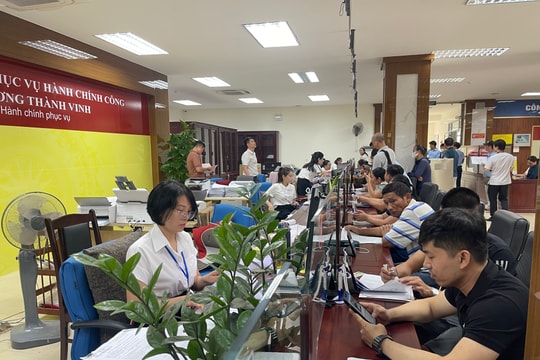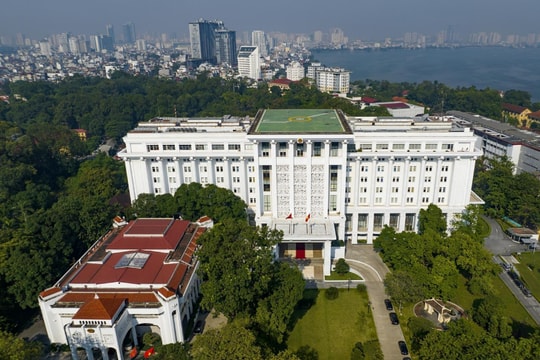Reviewing the policy of increasing young intellectual cadres in 61 poor districts
(Baonghean.vn) - Reviewing policies to increase young intellectual cadres in 61 poor districts; Implementing the Law on Irrigation; Reorganizing the domestic agricultural market; Preserving and promoting valuable archival documents;... are outstanding directions of the Government and Prime Minister last week.
1. Reviewing the policy of increasing young intellectual cadres in 61 poor districts
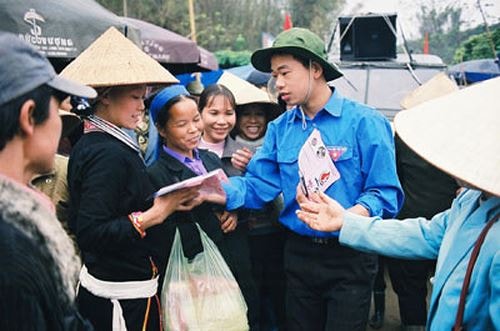 |
| The rotation and reinforcement of key cadres for communes in 61 poor districts to help people escape poverty sustainably. (Illustration photo - source chinhphu.vn). |
Deputy Prime Minister Vuong Dinh Hue requested the Ministry of Home Affairs to urgently review and evaluate the implementation of Decision No. 70/2009/QD-TTg dated April 27, 2009; at the same time, consult with ministries, branches and localities, and report to the Prime Minister for consideration and decision on amendments and supplements in May 2018.
On April 27, 2009, the Prime Minister issued Decision No. 70/2009/QD-TTg on policies on rotation and strengthening of key cadres for communes in 61 poor districts and preferential policies to encourage and attract young intellectuals and technical experts to join working groups in communes in 61 poor districts according to Resolution No. 30a/2008/NQ-CP dated December 27, 2008 of the Government.
This policy has been implemented since June 12, 2009. This is a major policy of the Government, when implemented in parallel with other projects, it will help 61 poor districts in the country escape poverty, eliminating the large gap in awareness and economy between people in mountainous areas and people in the plains and urban areas. Bringing knowledge to people in difficult circumstances is also helping people escape poverty in a sustainable way.
2. Implementing the Law on Water Resources
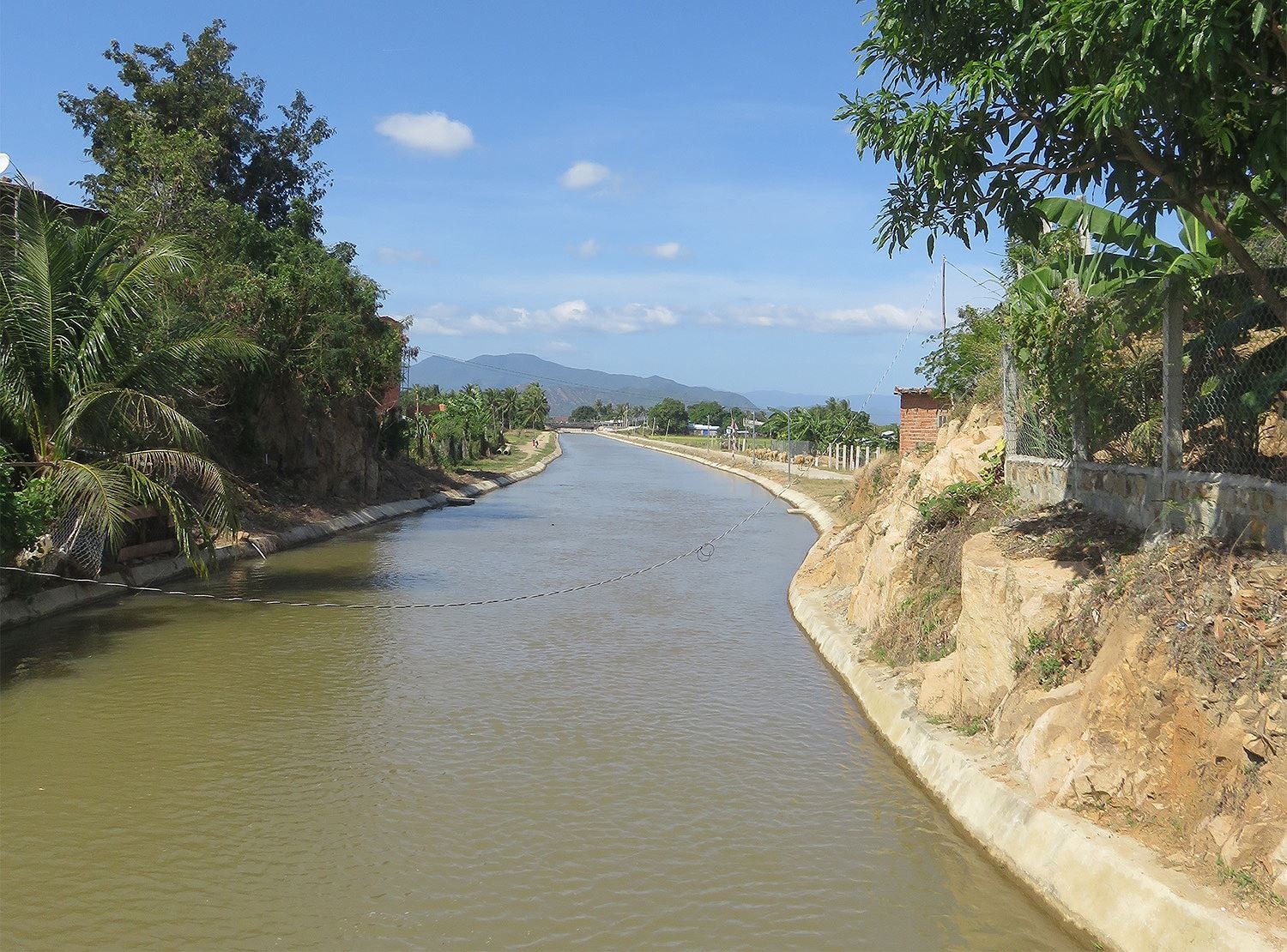 |
| Illustration photo |
According to the Plan, relevant ministries and branches will organize the dissemination of laws on irrigation. Specifically, the Ministry of Agriculture and Rural Development will preside over the compilation of propaganda content, topics, articles, legal Q&A posted on the media, the Ministry of Agriculture and Rural Development's electronic information portal and organize conferences to disseminate and thoroughly understand the basic content, new points of the Law on Irrigation and documents guiding its implementation.
The Ministry of Information and Communications directs press agencies to coordinate with the Ministry of Agriculture and Rural Development to develop programs and documents to disseminate and propagate the Law on Irrigation and documents guiding its implementation on mass media.
Voice of Vietnam, Vietnam Television and central and local press agencies shall preside over and coordinate with the Ministry of Agriculture and Rural Development and People's Committees at all levels to develop programs, columns and pages to disseminate and propagate the contents of the Law on Water Resources, with news articles promptly reflecting the implementation of the Law on Water Resources nationwide.
3. Reorganizing the domestic agricultural market
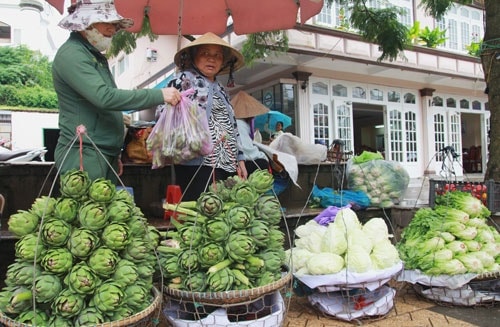 |
| Illustration photo. Source: Internet |
Deputy Prime Minister Trinh Dinh Dung requested to reorganize the domestic agricultural market, maintain traditional export markets while seeking new export markets.
Regarding the 2018 Agriculture and Rural Development Growth Scenario Report, the Deputy Prime Minister basically agreed and assigned the Ministry of Agriculture and Rural Development to preside over and closely coordinate with central ministries and branches to direct, guide, inspect and urge localities and functional agencies to focus on implementing synchronous solutions to achieve and exceed the set targets; control the production process, link production with market demand, overcome the situation of investing in production development following the trend leading to excess supply, negatively affecting production and people's lives; strengthen deep processing, control and ensure food hygiene and safety.
4. Preserve and promote valuable archival documents
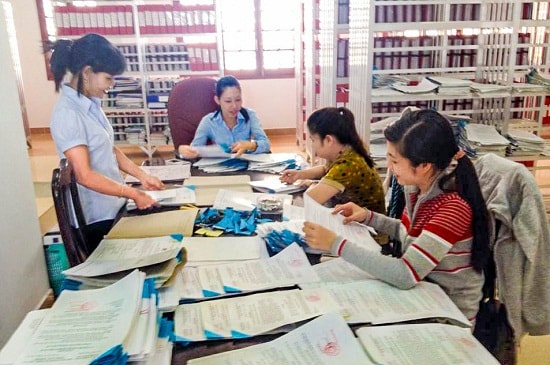 |
| Illustration photo |
The Government Office has just announced the concluding comments of Permanent Deputy Prime Minister Truong Hoa Binh at a working session with the State Records and Archives Department.
The conclusion announcement stated that the volume of documents that the State Records and Archives Department (Ministry of Home Affairs) is assigned to preserve and maintain is very large and includes many documents that are very valuable in terms of content and historical and cultural significance.
These documents reflect economic, political, cultural and social life as well as knowledge, experience and lessons from the past from the early 19th century to the present, including valuable documents that are evidence affirming the nation's sovereignty over Hoang Sa and Truong Sa islands.
Many documents have become valuable heritages such as: Nguyen Dynasty Woodblocks and Nguyen Dynasty Royal Records recognized by UNESCO as world documentary heritage; the collection of Decrees of the President of the Provisional Government of the Democratic Republic of Vietnam in the period 1945 - 1946 was recognized by the Prime Minister as a national treasure.
The Ministry of Home Affairs and the State Records and Archives Department must proactively coordinate with relevant ministries, branches, agencies, organizations and localities to organize activities to display, exhibit and introduce archival documents and documents that have been recognized as World Documentary Heritage to raise public awareness and introduce to international friends this heritage of special value.
5. Pilot implementation of specialized food safety inspection in 7 localities
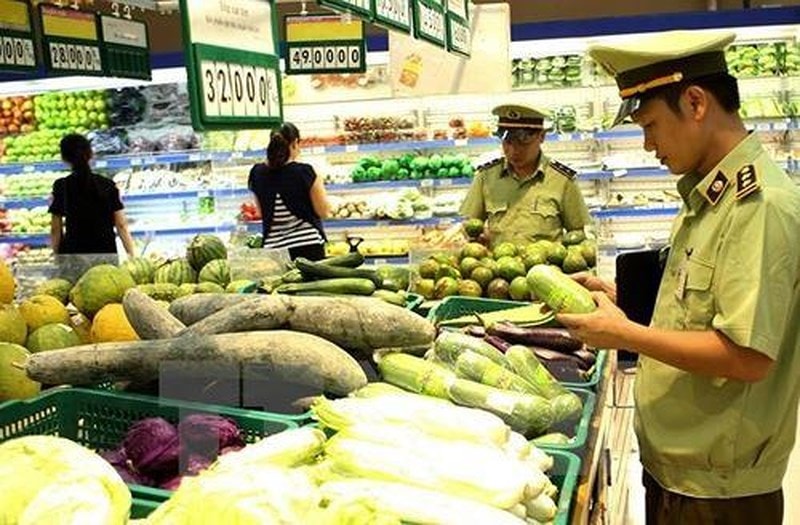 |
| Illustration photo |
The Government has just issued Resolution 19/NQ-CP on piloting specialized food safety inspections in districts, towns, communes, wards and townships of 7 provinces and centrally run cities.
The Resolution clearly states that the pilot implementation of specialized food safety inspections in districts, towns, communes, wards and townships of 7 centrally-run provinces and cities including: Hai Phong, Da Nang, Can Tho, Thanh Hoa, Ha Tinh, Dong Nai, Gia Lai on the basis of using the existing team of civil servants and public employees, without increasing the payroll.
The pilot scope is not more than 25% of district-level administrative units in 7 provinces and cities and not more than 20% of commune-level administrative units in district-level administrative units selected for the pilot. The pilot period is 1 year.
The Government requests the Chairman of the Provincial People's Committee to decide on district and commune-level administrative units to pilot specialized food safety inspections.
Civil servants and public employees assigned to perform specialized food safety inspection tasks at district and commune levels have the authority to handle administrative violations of food safety; are provided with separate uniforms and enjoy benefits according to the provisions of law.

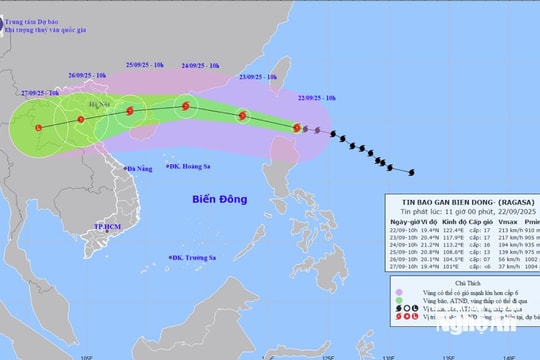
.jpg)
